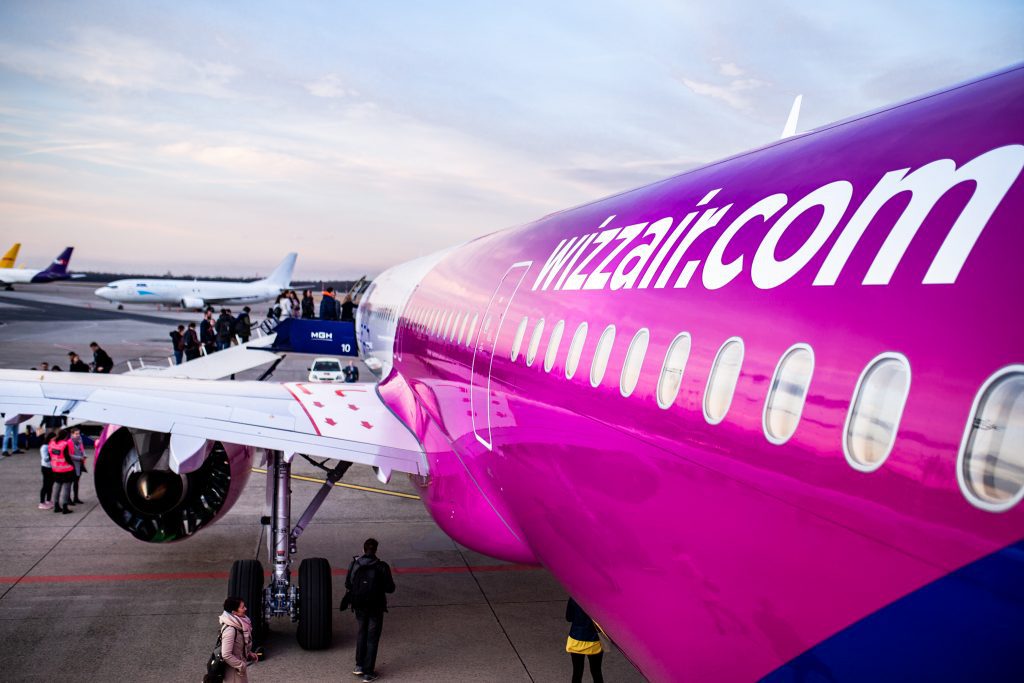Skift Take
Jozsef Varadi's outspoken comments has escalated another line of attack between discount carriers and the legacy airlines — this time on the relevance of business class and what it does to the planet.
The boss of Hungarian budget airline Wizz Air attacked the sustainability credentials of traditional airlines like Air France-KLM and Lufthansa, saying business class flying was bad for the environment.
The carbon emissions of airlines has been thrown into the spotlight since travel restarted after the pandemic and as worries over climate change grow.
Wizz Air’s Chief Executive Jozsef Varadi told the CAPA industry conference online that there was no place for business class on short-haul flights.
“Why do we have to fly business class, especially on short haul? A business passenger occupies a lot more space therefore the environmental footprint of your passenger is much greater,” he said on Wednesday.
The comments came as world leaders gathered on Wednesday at the COP26 climate conference in Glasgow, where a number of announcements related to the greening of transportation were expected.
They also opened a new front in the battle between newer low-cost carriers and older more traditional airlines over tackling the environmental burden.
Legacy airline leaders including Lufthansa’s boss Carsten Spohr have criticized low-cost carriers for offering what they describe as unrealistically low fares to stimulate travel at the expense of the environment.
Budget airlines like Wizz only offer one class of flying, while full-service airlines like Lufthansa offer different classes with more space for those willing to pay more.
Varadi said sustainability meant change in future: “I think that will require some of the airlines to fundamentally rethink how they are doing business and their business approach.”
British low cost airline easyJet said it planned to present further details of its net-zero roadmap in the coming months after committing to reach net-zero emissions by 2050.
British Airways-owner IAG agreed to purchase 220,000 tonnes of sustainable aviation fuel (SAF) from Velocys over 10 years, as part of its goal of using 10% SAF by 2030.
(Reporting by Sarah Young; Editing by Emelia Sithole-Matarise)
This article was from Reuters and was legally licensed through the Industry Dive publisher network. Please direct all licensing questions to [email protected].
![]()
The Daily Newsletter
Our daily coverage of the global travel industry. Written by editors and analysts from across Skift’s brands.
Have a confidential tip for Skift? Get in touch
